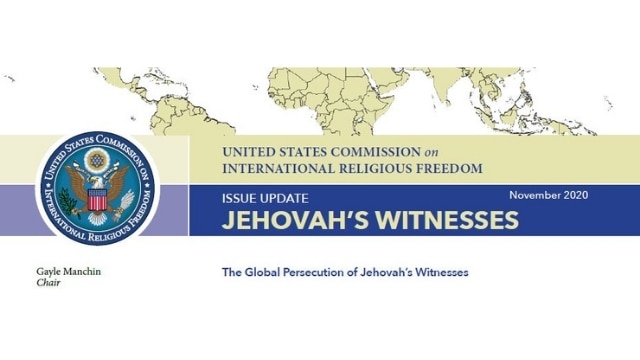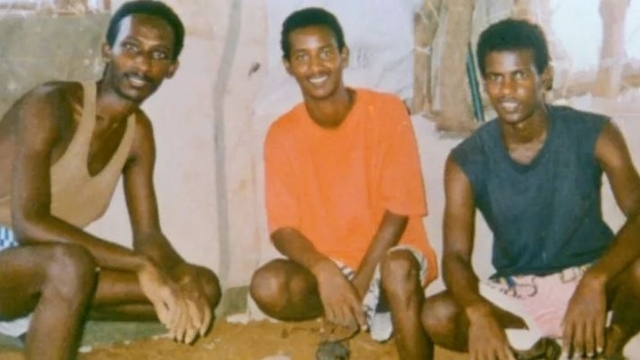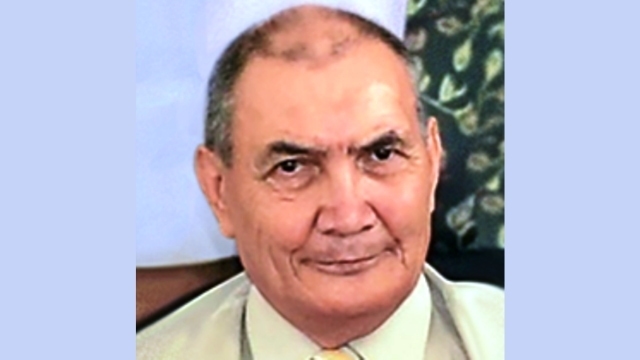Jehovah’s Witnesses: The World’s Most Persecuted Religion
A report by the U.S. Commission on International Religious Freedom describes persecution of the Witnesses as a global phenomenon.
by Massimo Introvigne

In Eritrea, if you are a member of a certain religion you will be stripped of citizenship, lose all your civil rights, and probably end up in jail. If you try to practice the same religion in Tajikistan or Singapore, you may be arrested. In Russia, your religion is banned and, if taken to jail, you may even be tortured. Even in some democratic countries, as a member of that religion there is a risk you will be harassed in several different ways.
This is the situation of the Jehovah’s Witnesses, according to a report released last month by USCIRF, the U.S. Commission on International Religious Freedom. USCIRF is a bipartisan commission of the U.S. federal government, whose members are designated by the congressional leaders of both political parties, Democrat and Republican, and appointed by the President.
Perhaps also because of the USCIRF report, on December 4 Eritrea released 28 Jehovah’s Witnesses, who had spent between 5 and 26 years each in prison. But another 24 Witnesses remain in jail there.
In the murky field of violations of religious liberty, sometimes the trees may hide the forest. While the situation of Jehovah’s Witnesses in Russia is dramatic enough, and often noticed by international media, what makes the USCIRF report a unique and valuable document is its global scope. While the persecution of other religious groups may be bloodier, victims are concentrated in one, or a limited number of countries. Jehovah’s Witnesses are persecuted in different continents, and discriminated or harassed in dozens of countries. The USCIRF reports has sections on Eritrea, Russia, Tajikistan, Turkmenistan, Azerbaijan, Uzbekistan, Kazakhstan, Singapore, and South Korea, but makes it clear that those are just “examples.” The Witnesses suffer problems in several other parts of the world. USCIRF acknowledges that its examples “do not include the many other countries where the faith is banned or faces official harassment. The situation is ultimately even bleaker than our survey might indicate.”
One of the reasons Jehovah’s Witnesses are persecuted is their uncompromising position on conscientious objection, based on arguments derived from the Bible. This, the report argues, is misinterpreted, either because of a lack of understanding or maliciously, as anti-patriotism or “rejection of official values.” In fact, Jehovah’s Witnesses are law-abiding citizens, ready to “serve society in a peaceful way,” if they are offered civil service alternatives that are clearly outside of the military system.
The United Nations and other international bodies, the USCIRF notes, have stated time and again that conscientious objection is a human right. Yet, in several countries Jehovah’s Witnesses continue to go to jail because they refuse to serve in the military. These include countries engaged in endemic conflicts, such as Azerbaijan (with Armenia) and South Korea (with North Korea), although in the latter country Supreme Court decisions of 2018 and 2020 stated that conscientious objection for religious reasons is not a crime, alternative service should be offered, and imprisoned Jehovah’s Witnesses should be released. Only four of them remains in jail in South Korea, because the “sincerity” of their conscientious objection has been disputed, after more than 19,000 were imprisoned since 1953. South Korea also starts offering a civil alternative, but asks those opting for it to serve for one more year with respect to the normal duration of military service, which is yet another form of discrimination.

In Eritrea, the report mentioned that 52 Jehovah’s Witnesses were in jail (as mentioned earlier, 28 were released on December 4). “Some of those Witnesses have been imprisoned for more than 20 years. According to reports, four Jehovah’s Witnesses have died in prison, and three elderly men died shortly after their release, due to poor prison conditions and mistreatment by prison authorities.” As in other countries, the report insists that conscientious objection is rarely the only reason why Witnesses are persecuted. Some of those in jail in Eritrea are only accused of having gathered or organized religious meetings illegally. In the African country, being a Jehovah’s Witnesses even leads to be deprived of citizenship and civil rights. And, while the situation has somewhat improved in recent years, in Singapore the Jehovah’s Witnesses were “de-registered” in 1972, and religious gatherings by non-registered groups may always be interrupted by the police, which may arrest the participants.
In Russia and the post-Soviet republics of Caucasus and Central Asia, the report explains, the roots of the persecution are in a Soviet propaganda that “spent decades demonizing Jehovah’s Witnesses as a danger to society.” While in more recent years, “it was easy to transition from viewing the historically vilified community as ‘anti-Soviet’ to branding them as ‘extremist,’” post-Soviet Russia added other reasons to crack down on the Witnesses, including official anti-American and anti-Western rhetoric and the influence of the most conservative faction of the Russian Orthodox Church. Russian influence was crucial in several post-Soviet republics, leading to a total ban in Tajikistan, accelerating crackdown in Turkmenistan, and discrimination in other countries.

Why are the Jehovah’s Witnesses persecuted? The report mentions the dangerous proliferation in the world of laws targeting “extremist” religious groups. Justified with the need to crack down on violent and terrorist organizations, these laws are then used against the Witnesses, although “the group is doctrinally apolitical and pacifist, and the prosecution of its members as dangerous ‘extremists’ demonstrates the capacity for abuse inherent in vague and sweeping anti-extremism legislation.”
Ultimately, the reasons why Witnesses are discriminated and persecuted are a matter for scholarly study. A seminar organized in September 2020 in Vilnius, and held online because of the COVID-19 pandemic, was entirely devoted to this issue. The video of the seminar is available, and the proceedings are being published in The Journal of CESNUR.
What the Jehovah’s Witnesses defend is the right to live differently, in this world, yet part of a kingdom “not of this world,” as Jesus says in John 18:36. Are our societies prepared to tolerate those who live in a way different from the majority’s, as long as they are peaceful, honest, and law-abiding citizens? That the answer is “no” in an increasing number of countries proves that our world is becoming a dangerous environment for religious liberty.
No comments:
Post a Comment